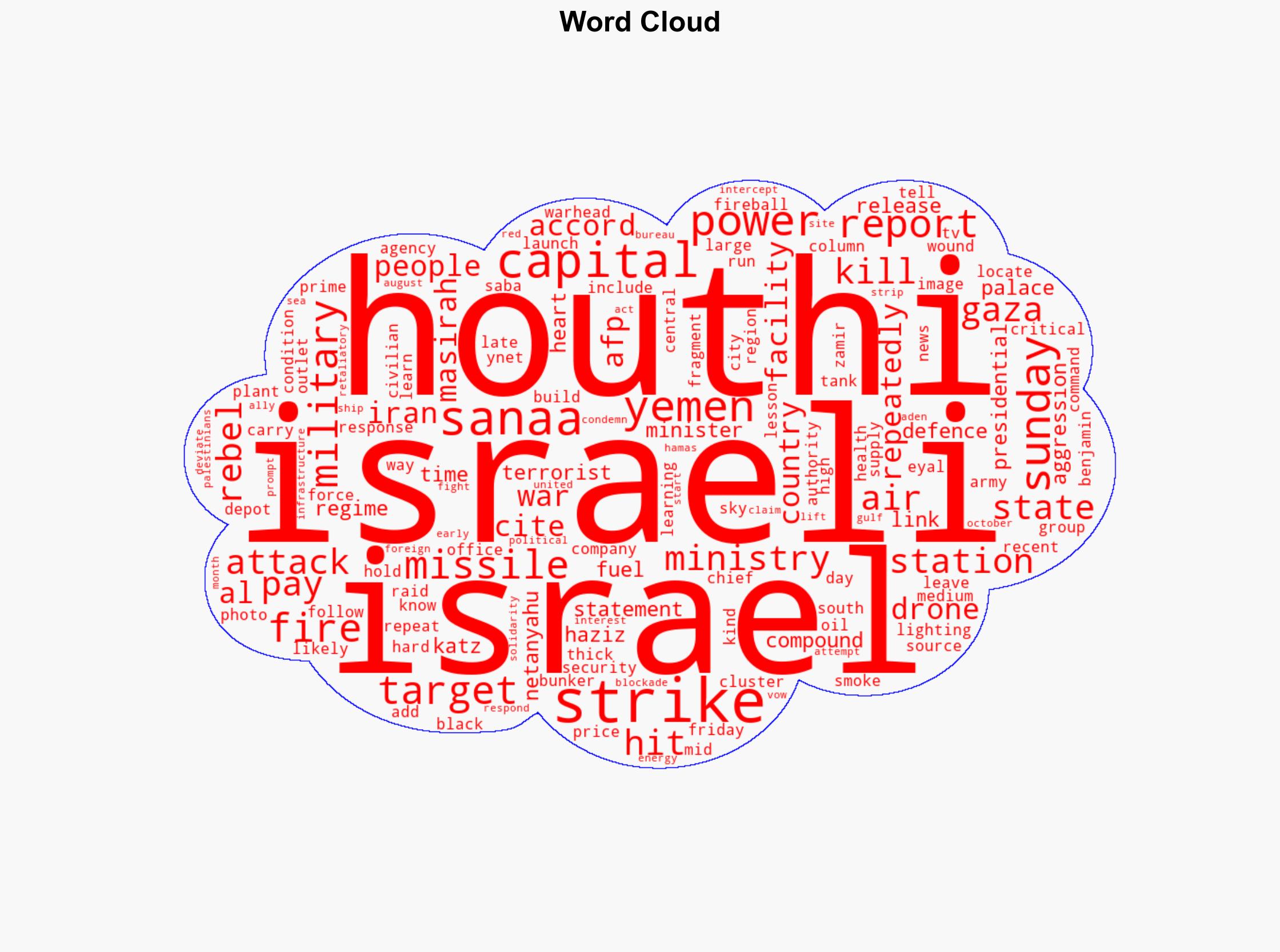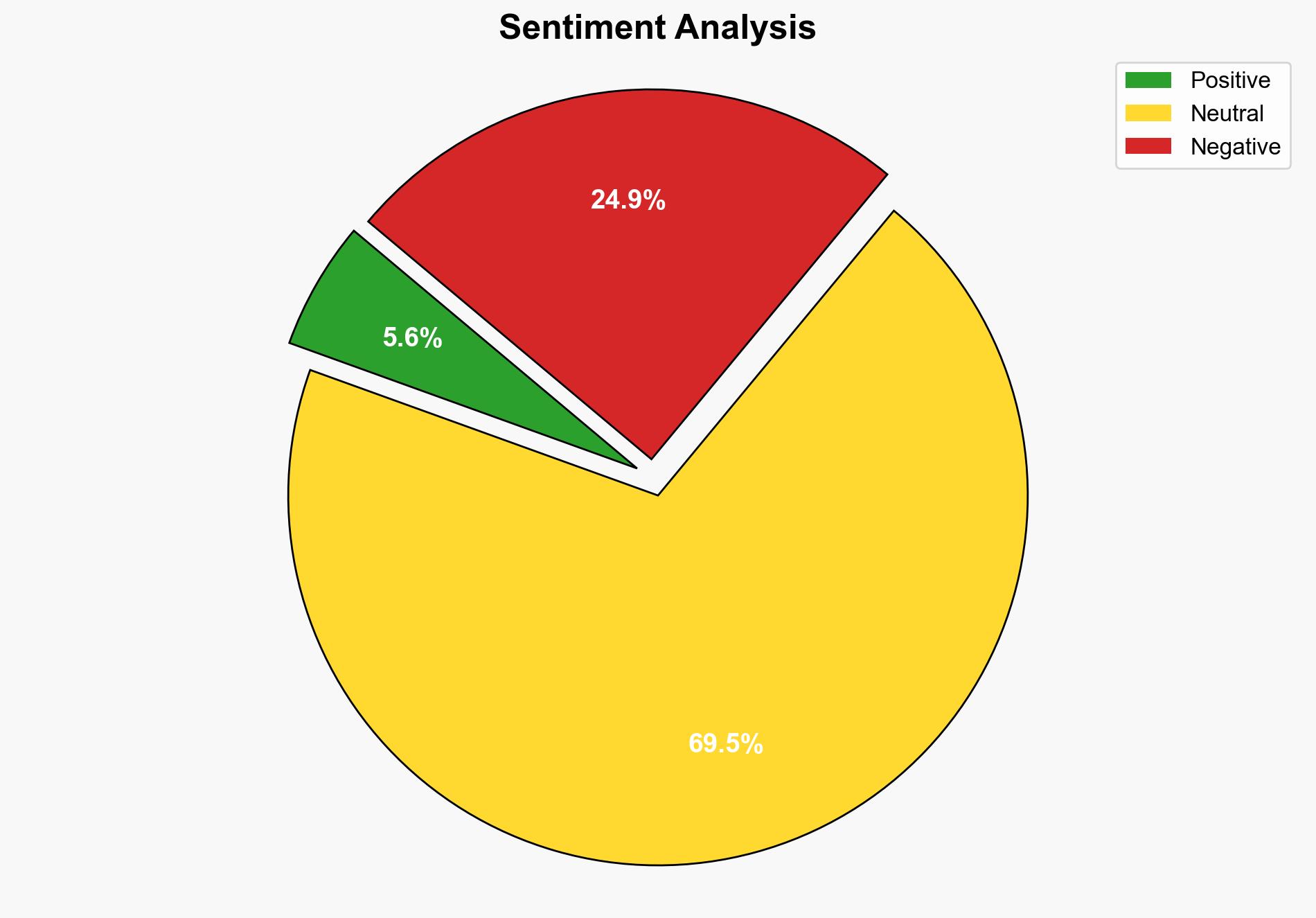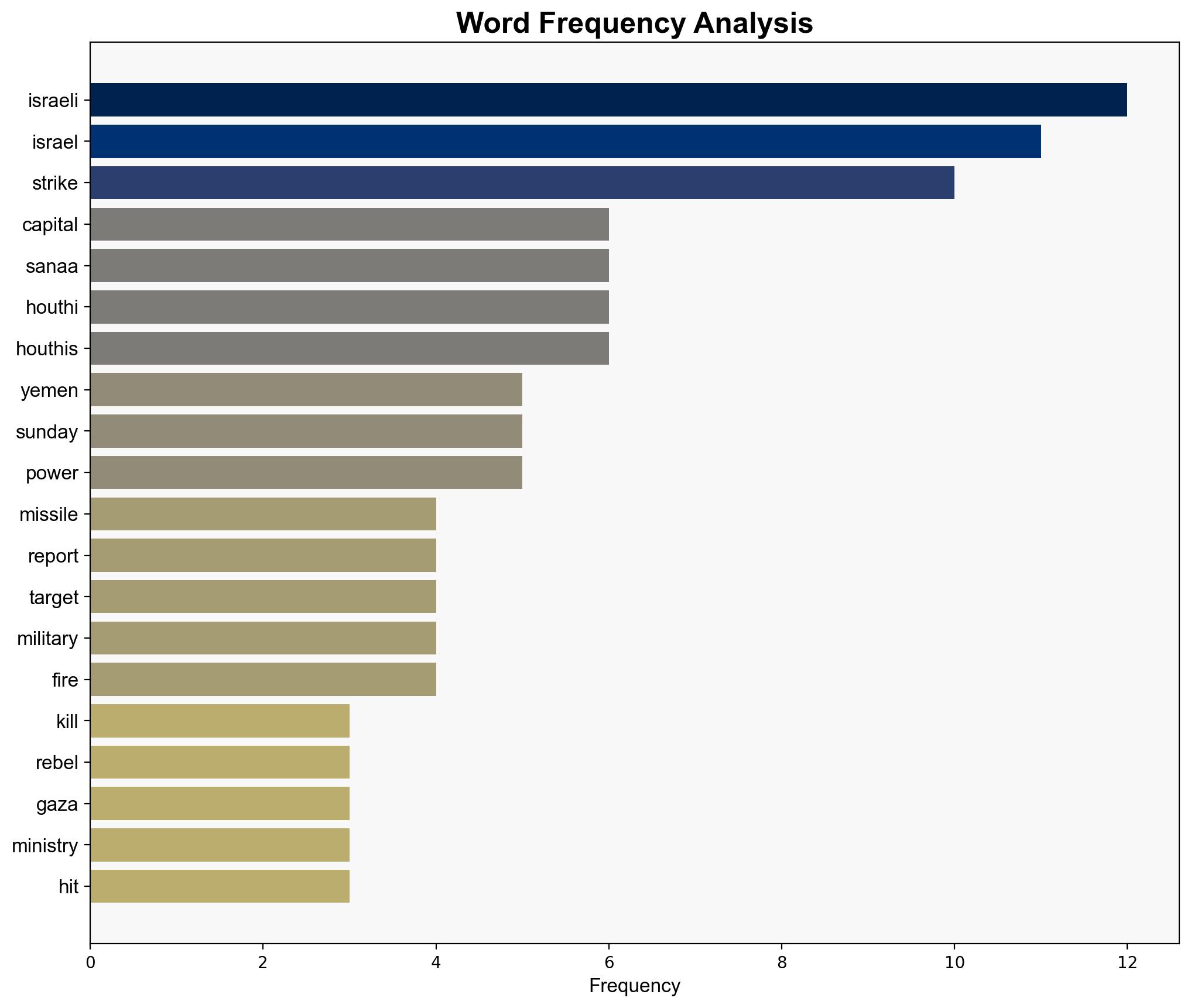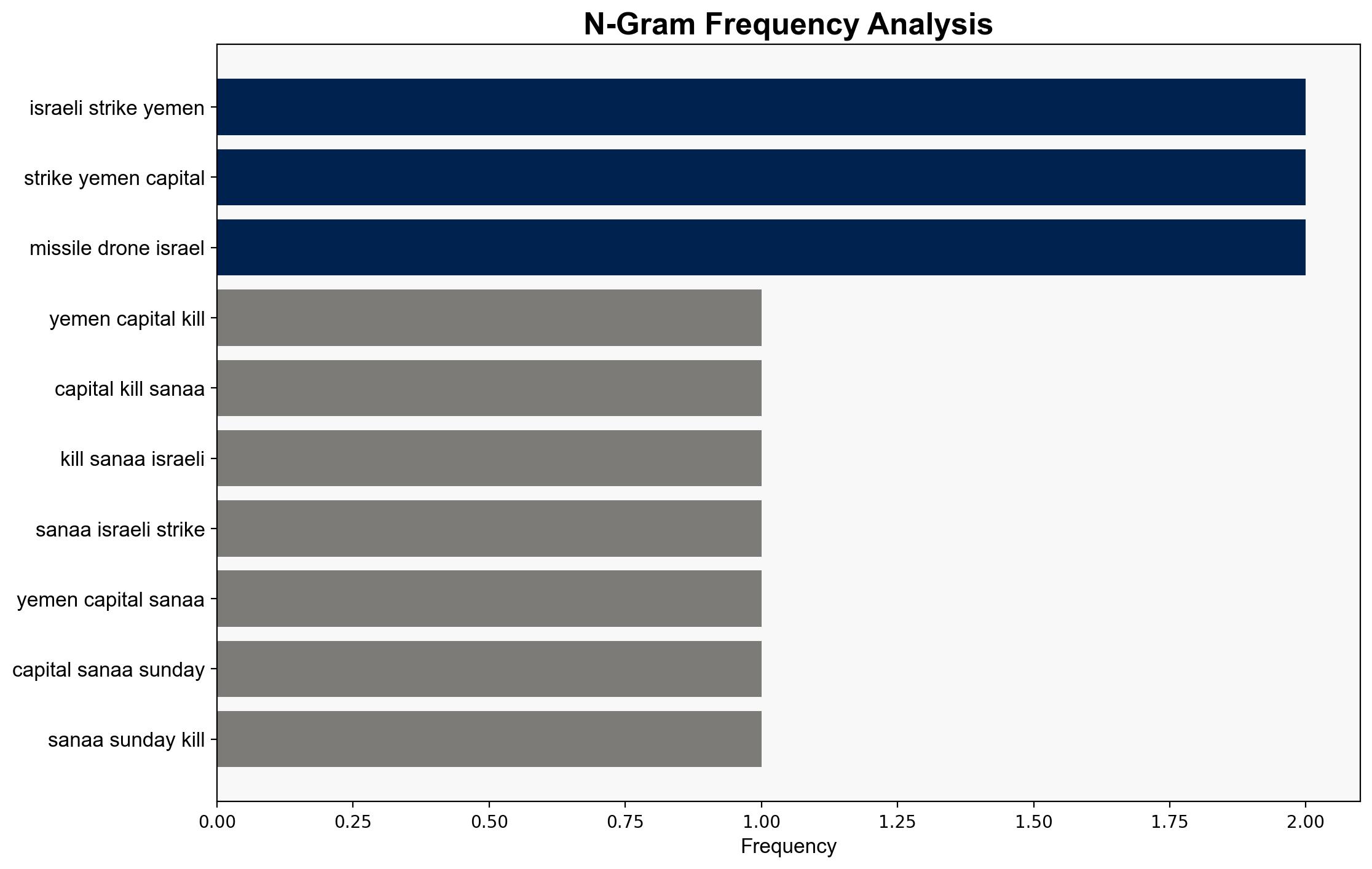Israeli strikes in Yemen’s capital kill six – Hurriyet Daily News
Published on: 2025-08-25
Intelligence Report: Israeli strikes in Yemen’s capital kill six – Hurriyet Daily News
1. BLUF (Bottom Line Up Front)
The most supported hypothesis suggests that Israeli strikes in Yemen were a direct response to Houthi missile and drone attacks, perceived as a threat to Israeli national security. Confidence level: Moderate. Recommended action: Enhance regional diplomatic efforts to de-escalate tensions and prevent further retaliatory actions.
2. Competing Hypotheses
Hypothesis 1: The Israeli strikes were a direct response to Houthi missile and drone attacks on Israel, aiming to neutralize immediate threats and deter future aggression. This hypothesis is supported by the pattern of retaliatory actions following Houthi attacks and statements from Israeli officials emphasizing security concerns.
Hypothesis 2: The strikes were part of a broader strategic objective to weaken Iranian influence in the region by targeting Houthi infrastructure, thereby indirectly impacting Iran’s regional proxy capabilities. This hypothesis considers the geopolitical context of Israeli-Iranian tensions and the strategic value of diminishing Houthi capabilities.
3. Key Assumptions and Red Flags
– Assumption for Hypothesis 1: The primary motivation for the strikes is immediate threat neutralization rather than broader strategic objectives.
– Assumption for Hypothesis 2: Israel’s actions are driven by long-term strategic goals against Iranian influence, beyond immediate security threats.
– Red Flags: Lack of independent verification of the targets hit and their strategic importance. Potential bias in reporting from involved parties (e.g., Houthi and Israeli sources).
4. Implications and Strategic Risks
– Escalation Risk: Continued strikes could lead to an escalation in the conflict, drawing in regional and international actors.
– Economic Impact: Disruption of energy infrastructure could affect local and regional economies, potentially impacting global oil prices.
– Geopolitical Tensions: Increased hostilities may strain diplomatic relations between Israel and countries sympathetic to the Houthi cause, such as Iran.
5. Recommendations and Outlook
- Engage in diplomatic channels to mediate between Israel and Houthi representatives, aiming to establish a ceasefire agreement.
- Monitor regional military movements and prepare for potential escalation scenarios.
- Best Case: Successful mediation leads to a reduction in hostilities and stabilization of the region.
- Worst Case: Escalation results in broader regional conflict involving multiple state and non-state actors.
- Most Likely: Continued tit-for-tat strikes with periodic diplomatic interventions to manage tensions.
6. Key Individuals and Entities
– Benjamin Netanyahu
– Israel Katz
– Eyal Zamir
– Houthi leadership
– Iranian Foreign Ministry
7. Thematic Tags
national security threats, regional conflict, counter-terrorism, geopolitical strategy




